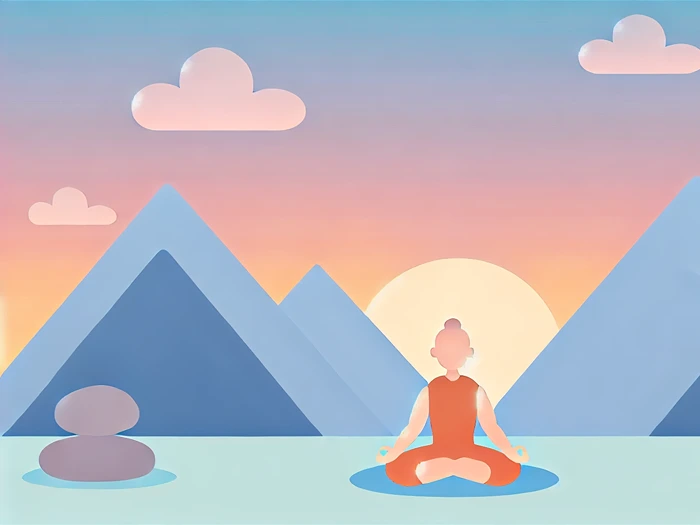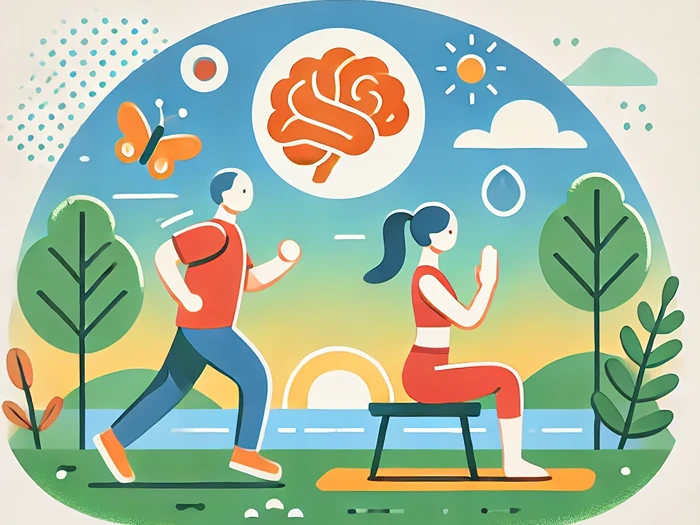
Holistic Health Tips for Better Well-Being and Natural Healing
Taking care of your health naturally can be incredibly rewarding. With holistic health tips, you can achieve better well-being and natural healing without relying on synthetic medications. Let’s explore how you can enhance your health using simple yet effective holistic methods.
What is Holistic Health?
Holistic health considers the whole person — body, mind, spirit, and emotions. It’s about finding balance in all areas of your life. Holistic health tips focus on natural ways to improve well-being and promote healing by looking at how different areas of your life affect your overall health.
Benefits of Holistic Health
Embracing holistic health can lead to numerous benefits, such as improved physical health, better mental clarity, and enhanced emotional balance. By addressing the root cause of health issues rather than just the symptoms, you can achieve lasting wellness.
Holistic Health Tips for Everyday Well-Being
How to Improve Your Diet with Holistic Nutrition
Your diet plays a crucial role in holistic health. Eating a balanced, nutrient-rich diet can support your body’s natural healing processes and enhance overall well-being.
- Eat Whole Foods: Focus on consuming fruits, vegetables, whole grains, and lean proteins. These foods provide essential nutrients that support overall health.
- Stay Hydrated: Drink plenty of water throughout the day to keep your body hydrated and functioning optimally.
- Avoid Processed Foods: Reduce your intake of processed and sugary foods, which can negatively impact your health.
Helpful Hint:
Consider incorporating more plant-based meals into your diet. Plant-based diets are rich in nutrients and can help reduce the risk of chronic diseases.
What Are the Best Holistic Practices for Mental Health?
Mental health is a key component of holistic well-being. Here are some holistic practices to improve your mental health:
- Meditation: Practicing meditation can help reduce stress and promote mental clarity.
- Mindfulness: Staying present in the moment can help you manage stress and anxiety more effectively.
- Journaling: Writing down your thoughts and feelings can provide emotional relief and insights into your mental state.
Helpful Hint:
Start your day with a few minutes of meditation. It can set a positive tone for the rest of the day and help you manage stress better.
How Can Exercise Benefit Holistic Health?
Regular physical activity is essential for holistic health. Exercise not only benefits your physical body but also improves mental and emotional well-being. Aim for at least 30 minutes of moderate exercise most days of the week. Activities like walking, yoga, and tai chi can be particularly beneficial.
What Are Effective Herbal Remedies for Common Ailments?
Herbal remedies have been used for centuries to treat various ailments. Here are some common herbal remedies for everyday health issues:
- Chamomile: Known for its calming properties, chamomile tea can help with sleep and digestion.
- Echinacea: Often used to boost the immune system and fight off colds and infections.
- Ginger: Excellent for relieving nausea and improving digestion.
Stats:
Studies show that about 40% of adults in the United States use some form of complementary or alternative medicine, including herbal remedies. This indicates a growing interest in natural health solutions.
Holistic Techniques for Better Sleep
Getting quality sleep is crucial for overall health. Here are some holistic tips to improve your sleep:
- Create a Sleep Routine: Go to bed and wake up at the same time every day to regulate your body’s internal clock.
- Avoid Stimulants: Reduce your intake of caffeine and sugar, especially in the evening.
- Relax Before Bed: Engage in calming activities like reading or taking a warm bath to prepare your body for sleep.
How Does Stress Management Impact Holistic Health?
Managing stress is a vital part of holistic health. Chronic stress can lead to numerous health issues, so it’s important to find effective ways to manage it.
- Deep Breathing: Practice deep breathing exercises to calm your mind and reduce stress.
- Physical Activity: Regular exercise can help reduce stress and improve your mood.
- Hobbies: Engaging in hobbies you enjoy can provide a much-needed break from daily stressors.
Helpful Hint:
Try incorporating deep breathing exercises into your daily routine. Just a few minutes a day can significantly reduce stress levels.
How Does a Holistic Approach Improve Chronic Condition Management?
Holistic health can be particularly beneficial for managing chronic conditions. By addressing all aspects of health, you can improve your quality of life and potentially reduce symptoms.
What Are Natural Solutions for Hormonal Balance?
Hormonal balance is crucial for overall health. Here are some natural ways to support hormonal balance:
- Diet: Eating a balanced diet rich in nutrients can help regulate hormones.
- Exercise: Regular physical activity can support hormonal health.
- Herbal Supplements: Herbs like maca root and ashwagandha can help balance hormones.
Common Holistic Health Techniques and Benefits
| Technique | Description | Benefits |
|---|---|---|
| Meditation | A practice of focused attention and mindfulness. | Reduces stress, improves concentration, and enhances emotional health. |
| Yoga | A physical and mental practice that combines postures, breathing exercises, and meditation. | Increases flexibility, strengthens muscles, and promotes relaxation. |
| Aromatherapy | The use of essential oils to promote physical and emotional well-being. | Enhances mood, alleviates pain, and improves sleep quality. |
| Acupuncture | An ancient Chinese practice of inserting needles into specific points on the body. | Relieves pain, reduces inflammation, and promotes overall wellness. |
Holistic Health: Pros and Cons
Pros
- Improves overall well-being by addressing physical, mental, and emotional health.
- Uses natural remedies which often have fewer side effects compared to pharmaceuticals.
- Encourages preventative care and healthy lifestyle choices.
- Promotes a deeper understanding and connection with one’s body.
- Holistic practices can be personalized to fit individual needs.
Cons
- Some holistic treatments lack scientific validation and can be viewed as less credible.
- Can require significant time and commitment to see results.
- May be more costly due to the need for specialized practitioners or organic products.
- Potential for interactions with conventional medications.
- Not all conditions can be effectively treated with holistic approaches alone.
FAQs
Wrapping Up
Holistic health offers a comprehensive approach to well-being by focusing on the whole person—body, mind, and spirit. Through natural remedies, mindful practices, and lifestyle adjustments, individuals can achieve better health and balance. By understanding and incorporating these holistic health tips, you can take proactive steps towards natural healing and overall wellness. Remember, it’s important to find practices that resonate with you and to consult with healthcare professionals when necessary. Embrace the journey to a healthier, more balanced life with these holistic health strategies.




